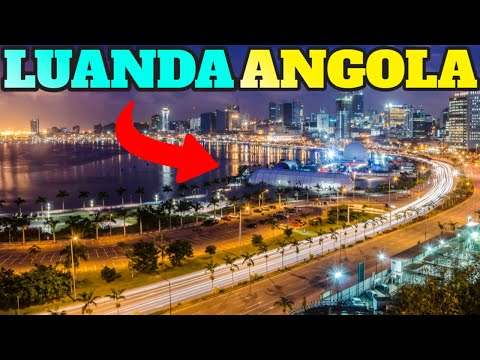
Luanda, the bustling capital of Angola, is a city of contrasts, where traditional African culture intertwines with Portuguese colonial influences against a backdrop of rapid modernization. It is a place where stark disparities in wealth and lifestyle exist side by side. As one of the oldest colonial cities in Africa’s western region, Luanda offers a rich historical tapestry, intriguing cultural dynamics, and an increasingly significant role in the global economy. Here’s everything you need to know about this fascinating city.
### History
Founded by the Portuguese in 1575 under Paulo Dias de Novais as São Paulo da Assunção de Loanda, Luanda has evolved from a major center of slave trade into a vibrant metropolis. After gaining independence from Portugal in 1975 following a prolonged struggle led by liberation movements such as MPLA (Popular Movement for the Liberation of Angola), FNLA (National Front for the Liberation of Angola), and UNITA (National Union for the Total Independence of Angola), Luanda became the heartland of a new era.
### Geography and Climate
Luanda is situated on Angola’s northern coastline with the Atlantic Ocean. The city expands around its natural bay and several islands like Ilha do Cabo and Ilha de Luanda add to its scenic beauty. The climate is generally tropical dry, with a hot and rainy season between October and April contrasting a cooler dry season from May to September.
### Economy
Today, Luanda stands as one of Africa’s major economic centers. It is significantly shaped by its oil production sector which draws international businesses and expatriates alike. Despite global oil price fluctuations impacting its growth rhythmically, Luanda has been diversifying its economy with investments in other sectors like construction, real estate, banking, and telecommunications.
### Society and Culture
Luandan culture is deeply influenced by Portuguese heritage which manifests in language (Portuguese remains the official language), religion (Roman Catholicism is predominant), architecture, food, and music genres like Kizomba or Semba that are popular among locals. Yet traditional Angolan customs still thrive within family structures and community ceremonies showcasing dances like Kuduro or festivals celebrating saints’ days.
### Challenges
Despite its wealth from oil reserves making it one of Africa’s richest cities economically speaking; it also ranks among those with highest disparities between rich and poor populations globally. Infrastructure challenges such as water supply shortage or inadequate sanitation services are widespread issues that add complexity to urban life here.
### Tourism
Tourism in Luanda might not be developed comparably to other global cities; however it offers unique experiences for those willing to explore beyond tourist clichés: from stunning beaches at Mussulo island to exploring historic forts like Fortaleza de São Miguel built during Portuguese colonization era or visiting Mausoleum dedicated to Agostinho Neto – Angola’s first president.
### Living in Luanda
For expatriates planning on living here should prepare for high living costs due mainly because goods often need importing resulting pricing surges especially on housing which can be expensive due demand far outweighing supply particularly within secured compounds commonly chosen by foreigners for residency purposes due added security measures offered there compared local alternatives available elsewhere throughout city areas less protected against crime rates more prevalent outside these zones catering principally towards local inhabitants instead foreign visitors/workers residing temporarily within country borders attending business dealings related directly back their respective industries involved primarily around oil production activities centralizing largely throughout capital itself thereby influencing greatly overall daily lives inhabitants both foreigner alike living within means afforded each accordingly based upon individual circumstances varying widely across board depending socioeconomic factors involved at play any given time frame considered average standards measured against others globally speaking making it important consider all aspects carefully before deciding move here whether short term long term basis depending requirements needs met adequately enough justify such relocation efforts undertaken initially outset starting new life abroad anywhere let alone somewhere diverse culturally historically economically politically socially as Luando Angola certainly proves itself time time again despite hardships faced regularly residents call place home regardless background brought them there first place making truly unique destination worth exploring deeper understanding gained through firsthand experience alone sometimes best way really learn about place people call home no matter where world happens located at geographic standpoint universal truths remain same overall everywhere shared collectively amongst humanity large thereby connecting us together closer ever before seen previously history mankind thus far witnessed unfold right before very eyes real-time day-to-day basis just goes show much we all have common end day after all said done remains seen what future holds store next generation come follow footsteps made today paving way forward tomorrow better brighter ever hope achieve together united common cause greater good all concerned ultimately end achieving peace prosperity worldwide scale someday hopefully soon than later sooner better everyone involved direct indirect manner alike benefit greatly endeavors undertaken today lead improvements tomorrow bring forth fruits labor enjoyed everyone around world shared equally amongst populations vast diverse planet earth we all share call home now forever more amen.
